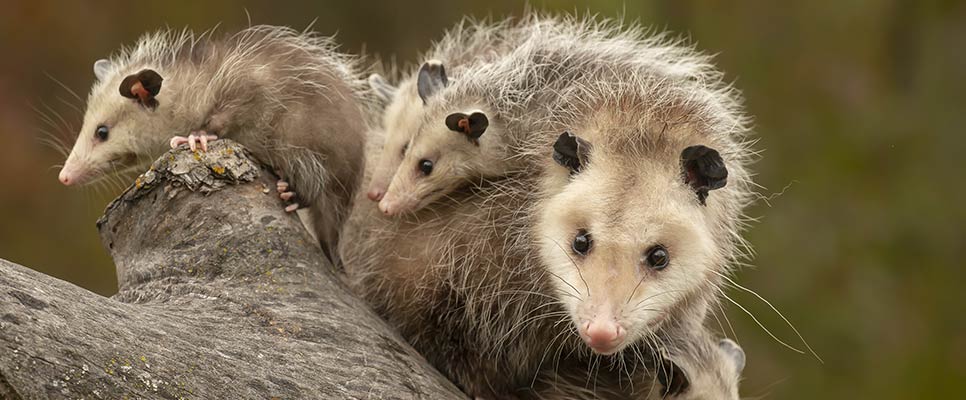
Possum Lifespan: How Long Do Possums Live?
Possums are sneaky marsupials generally found in Australia and New Zealand. They have a thick, bushy tail, a pointed snout, thick body fur, and large pointed ears. There are about 27 species of possums present but the most common ones are Brushtail possums and Ringtail possums. They are normally found in 2 colours that are grey and black. An adult possum has a weight of 1.5 to 5 kg and is 65 to 95 cm long. Possums are nocturnal animals and are always in search of food and shelter. These are omnivorous, that is they can feed on both plants and small animals. They can enter any property and live there in search of food and shelter and so they are considered pests as they are one of the greatest threats to our natural environment.
How Long Do Possums Live?
Every animal has an average lifespan which depends upon several factors and so as the Possum. They have an average lifespan of 5-8 years. Of the 2 main species, Ringtail Possums can live between 10-12 years while a Brushtail Possum can live up to 13 years. Females have a greater survival rate than male possums. Some factors that may affect the lifespan of possums are predation, lack of food sources, habitat degradation, and humans. All these factors are sometimes the reason for their shorter lifespan.
Also See: How to Identify and Remove Smell Of Dead Possum?
Life Cycle Of Possum
Possums go through many stages during their life cycle, including birth, infancy, adolescence, and adulthood. So, the general overview of the life cycle of possums are:
- Birth: With a gestation period of 16-24 months, the female possum gives birth to a single child. These are found in an undeveloped state called a joey. It is about the size of a jellybean, blind and hairless. Breeding mainly occurs throughout the year but mostly in spring.
- Infancy: During the development phase, the joey remains in the mother’s pouch for about 2-3 months. It gets all the nourishment it needs from the mother’s milk for the development of fur, the ability to hear, and eyesight also.
- Adolescence: Joey becomes more independent after the development phase and now he begins to explore their surroundings and learn essential skills. It then gradually weans off the mother’s milk and consumes food on its own.
- Adulthood: The adulthood stage of the possum is around 7-12 months of age. This is the stage when it becomes sexually mature and capable of reproduction.
Must Read: Is It A Possum Or A Rat In My Roof?
Factors Influencing Possum Longevity
There are a number of factors that influence the longevity of possums. Some of the key factors are described below:
- Environmental factors: Many factors can impact the survival rate of possums, including habitat quality, the presence of predators and also the availability of food and water, etc.
- Predation and diseases: Possum easily gets predated by large animals, domestic animals, or birds of prey. But the intensity of affection for these factors depends upon the location and specific possum species. Various bacteria, viruses, and fungi may also have the tendency to infest possums, through which they suffer from a number of diseases.
- Diet and nutrition: As human beings require a balanced diet, possums also require various nutrients from a number of food sources to enhance the working of the immune system to prevent diseases. The abundance or deficiency of which decides their lifespan.
- Species: There are many species of possums found which differ in their life span like the Brushtail possum has a lifespan of 7-13 years while the Ringtail possum has 10-12 years.
For some good reason, possums have been protected by law, so we must contribute to the safety of such species. If you want possums removed from your house contact our humane possum removal experts and they will help you do it in a humane and safe manner.
